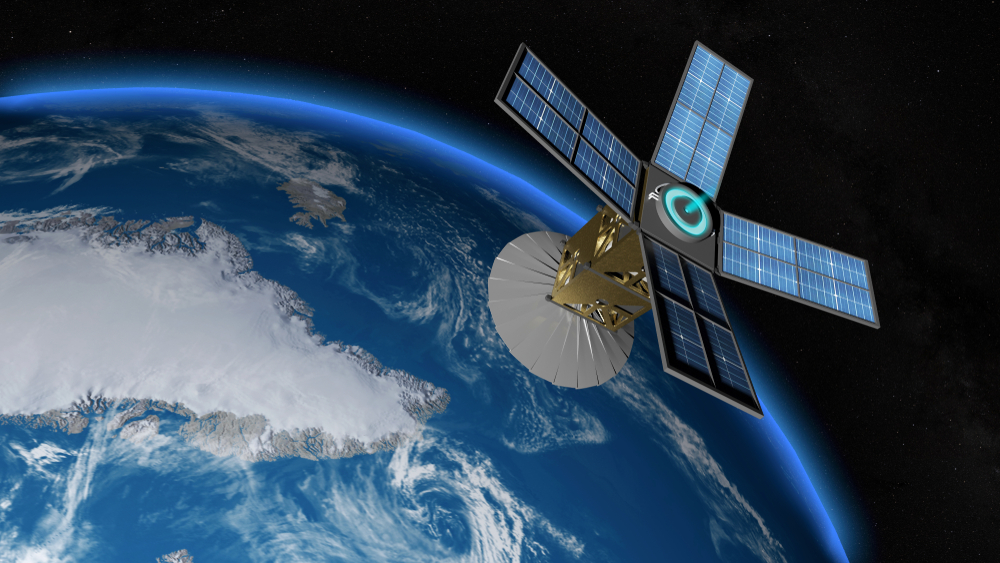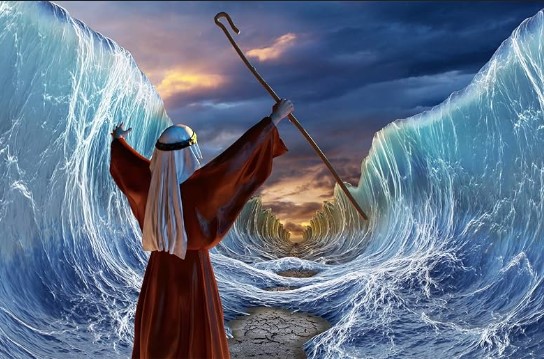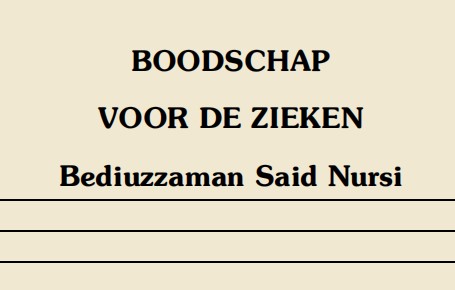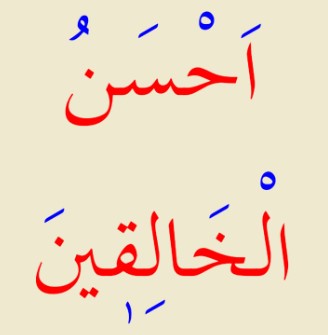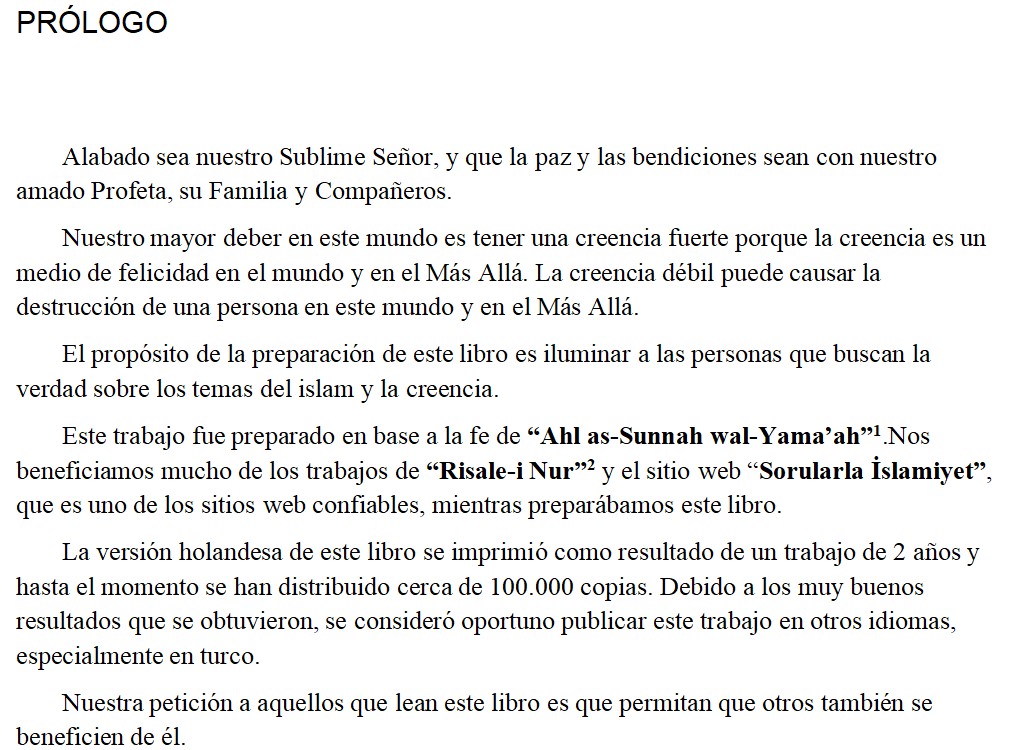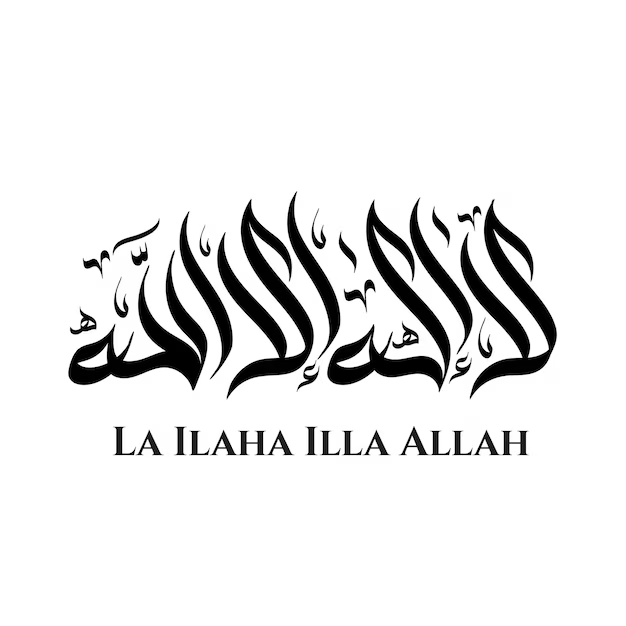
Is La ilaha illAllah Enough?
IS LÂ ILAHE ILLALLAH (there is no god but Allah) SUFFICIENT?
There is a matter that can be misunderstood based on a hadith. The Prophet said in a hadith that whoever says “La ilahe illallah” (there is no god but Allah) will enter Paradise. Based on this, some people claim that saying this sentence is enough to enter Paradise and that it is not necessary to believe in prophets. This is explained very clearly in the Risale-i Nur:
You ask in your letter whether “There is no god but Allah” is sufficient on its own. That is, intending the second part, you ask: can someone who does not say “Muhammad is the Messenger of Allah” find salvation? The answer to this is lengthy, so for now we shall only say this:
The two parts of the confession of faith cannot be separated; they prove each other, comprise each other; one cannot be without the other. Since the Messenger (Upon whom be blessings and peace) was the Seal of the Prophets and the heir of all the prophets, he is at the start of all the ways leading to Allah. There can be no way to reality and salvation outside his mighty highway. All the leading gnostics and verifiers of reality have said like Sa‘di Shirazi: “It is impossible, Sa‘di, to be victorious on the way of salvation, except by following Mustafa.” They also said: “All ways are closed except the highway of Muhammad.”
However, it sometimes happens that people are on the highway of Muhammad (UWBP) and within it, but are not aware of it.
And it sometimes happens that they do not know the Prophet (UWBP), but the road they have taken is part of his highway.
It happens too that because they are in a state of ecstasy or entirely immersed in contemplation or have withdrawn from the world, they do not think of the highway of Muhammad, and “There is no god but Allah” is sufficient for them.
Nevertheless, the most important side of the matter is this: non-acceptance is one thing, while the acceptance of non-being is another.
Ecstatics and recluses or those who have not heard or are uninformed about it, do not know the Prophet (UWBP) or they do not think of him that they might accept him. They are ignorant in that respect. They know “There is no god but Allah” only in respect of esoteric knowledge of Him. They may well be saved. But if those people who have heard of the Prophet (UWBP) and know his message do not affirm him, they do not recognize Almighty Allah. For them, the phrase “There is no god but Allah” on its own does not express divine unity, the affirmation of which is a means of salvation. For this is not ignorant non-acceptance, which may be excusable to a degree, it is rather the acceptance of non-being, which is denial. The person who denies Muhammad (Upon whom be blessings and peace), who with his miracles and works was the pride of the universe and glory of mankind, certainly cannot receive any light and will not recognize Allah. However, that is enough for now. (The Letters, 386)
In one of his early works, Bediuzzaman summarizes this long explanation in a few sentences:
The two phrases of the confession of faith testify to each other. The first is the proof of cause to effect of the second, while the second is the proof of effect to cause of the first. (The Letters, Seeds of Reality, 530)
On the other hand, Bediüzzaman, while he was in exile in Kastamonu, wrote a letter about the II. World War as follows:
Out of my compassion and tenderness, a spiritual and severe cold together with the severe cold of this winter, and the disasters, misfortunes, miseries, starvation that come to the miserable from the misfortune of humanity touched my compassion. Suddenly I was warned: In such calamities, there is a kind of mercy and reward for the unbeliever, even if he is a disbeliever, and that calamity is very cheap compared to him. Such a calamity is a kind of martyrdom about the innocent.
For three or four months, when I was not aware of the world situation and the war, I remembered the children in Europe and Russia with pity. The division declared by that spiritual warning became a balm for this bitter pain and compassion. It is as follows:
Those who die and are miserable as a result of the calamity and the murder of the cruel part of mankind, if they are up to the age of fifteen, are martyrs, no matter what religion they are. Their great spiritual rewards like Muslims reduce that calamity to nothing.
Those above fifteen, if they are innocent and oppressed, have a great reward; perhaps it will save them from Hell. For in the end times, since a veil of indifference to religion and the religion of Muhammad (PBUH) has come, and since the religion of Jesus (PBUH) will rule in the end times, it will come shoulder to shoulder with Islam. Of course, the calamities suffered by the oppressed Christians who belong to the religion of Jesus Christ (PBUH) and who are now in darkness like the “fatrat”(*) can be called a kind of martyrdom about them. Especially the elderly and the afflicted, the poor and the weak are suffering under the force and violence of great tyrants. Of course, I have heard from the truth that, that calamity is a hundred degrees of profit for them, as well as being atonement for the sins that come from the wickedness and blasphemy of civilisation and the misguidance and disbelief of philosophy. I thanked Almighty Allah. And I found consolation from that bitter pain of compassion. (Kastamonu Letters - 111)
Nur Way
(*) Fatrat: The dark period between prophets.
